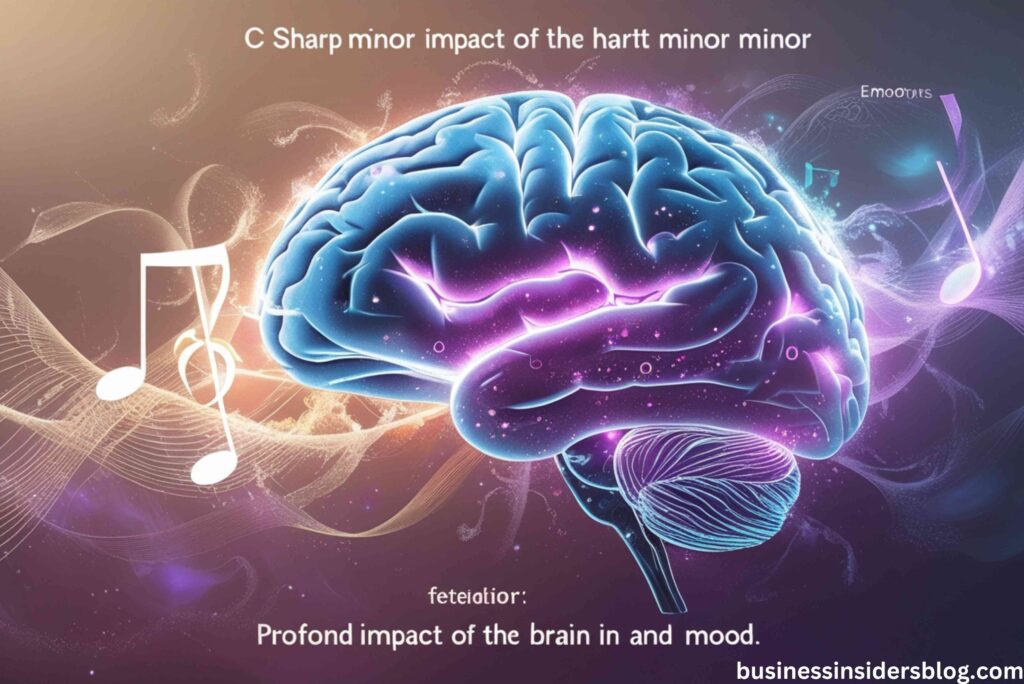Introduction To C Sharp Minor
Music has an extraordinary way of making us feel things. Some songs bring joy, others nostalgia, and some—like those in C Sharp Minor—carry a mysterious and emotional weight. But why does this specific key seem to tug at our heartstrings more than others? Let’s dive into the fascinating psychology behind C Sharp Minor and uncover its emotional impact.
Understanding Musical Keys and Emotions
Music can evoke emotions ranging from joy to sorrow. Major keys are often associated with happiness and brightness, while minor keys tend to feel melancholic or intense. But why? Our brains process musical patterns and link them to past experiences, moods, and even cultural conditioning.
The Unique Characteristics of C Sharp Minor
C Sharp Minor isn’t just any minor key—it carries a distinct dark yet passionate quality. Unlike A Minor or E Minor, which might sound more familiar and conventional, C Sharp Minor has a certain tension that makes it uniquely expressive.
Why C Sharp Minor Feels Mysterious and Intense
Ever notice how some songs in C Sharp Minor feel almost haunting? This key often creates a sense of longing, unease, or deep reflection. It’s commonly used in music that conveys introspection, heartbreak, or even mystical elements.
Famous Compositions in C Sharp Minor
Many legendary composers have used C Sharp Minor to craft emotionally charged pieces. Some of the most notable include:
- Beethoven’s “Moonlight Sonata” (1st Movement) – A deeply melancholic and expressive piece.
- Rachmaninoff’s Prelude in C Sharp Minor – A dramatic and powerful composition.
- Chopin’s Nocturne in C Sharp Minor – A tender yet sorrowful melody.
The Role of C Sic psychology suggests that minor keys activate the brain’s emotional centers, particularly the amygdala, which processes fear, sadness, and nostalgia. C Sharp Minor, with its specific frequency and harmonic structure, seems to resonate even deeper.
How C Sharp Minor Affects the Brain and Mood

Hearing music in C Sharp Minor can trigger:
- Increased emotional engagement – Listeners often feel more connected to the music.
- Heightened nostalgia – This key frequently evokes past memories.
- A sense of mystery – The harmonics create a sound that feels unresolved yet intriguing.
Comparison With Other Minor Keys
- A Minor – Sad but simple, often used in folk music.
- E Minor – Melancholic yet versatile, used in rock and classical.
- C Sharp Minor – Dark, mysterious, and dramatic, often linked to deep emotions.
How Composers Use C Sharp Minor for Emotional Impact
Composers strategically use C Sharp Minor to create emotional tension and resolution. They often:
- Start with a soft, haunting melody.
- Build intensity through dissonance and dynamics.
- Resolve with hopeful or tragic conclusions.
Listener Perception and Cultural Influence
In Western music theory, C Sharp Minor is perceived as somber and dramatic. However, in different cultures, similar tonal structures may be interpreted differently—sometimes even as spiritual or meditative.
How to Compose in C Sharp Minor
Want to write music in C Sharp Minor? Here are some tips:
- Use C#, D#, E, F#, G#, A, and B in your melodies.
- Experiment with chord progressions like C#m – A – G# – F#.
- Add suspense and resolution by playing with dynamics.
Final Thoughts: The Emotional Power of C Sharp Minor
Music is a universal language, and C Sharp Minor speaks volumes. Whether it’s heartbreak, mystery, or deep reflection, this key taps into some of the most profound human emotions. The next time you hear a piece in C Sharp Minor, take a moment to truly feel its depth—it might just move you in ways you didn’t expect.
FAQs
1. Why does C Sharp Minor sound so emotional?
C Sharp Minor’s unique combination of notes creates tension and longing, making it sound more emotional than other keys.
2. Is C Sharp Minor a difficult key to play?
It can be challenging for beginners due to the number of sharps, but with practice, it becomes easier to navigate.
3. What genres commonly use C Sharp Minor?
Classical, rock, film scores, and even some jazz pieces utilize C Sharp Minor for its dramatic effect.
4. How does C Sharp Minor compare to D Minor?
D Minor is often called the “saddest key,” while C Sharp Minor leans more toward mysterious and dramatic.
5. Can music in C Sharp Minor make you feel sad?
Yes! Music in minor keys, especially C Sharp Minor, can evoke deep emotions like sadness, nostalgia, or contemplation.
C Sharp Minor isn’t just another key—it’s a gateway to deep emotions and musical storytelling. Whether you’re listening or composing, understanding its power can change the way you experience music forever!
